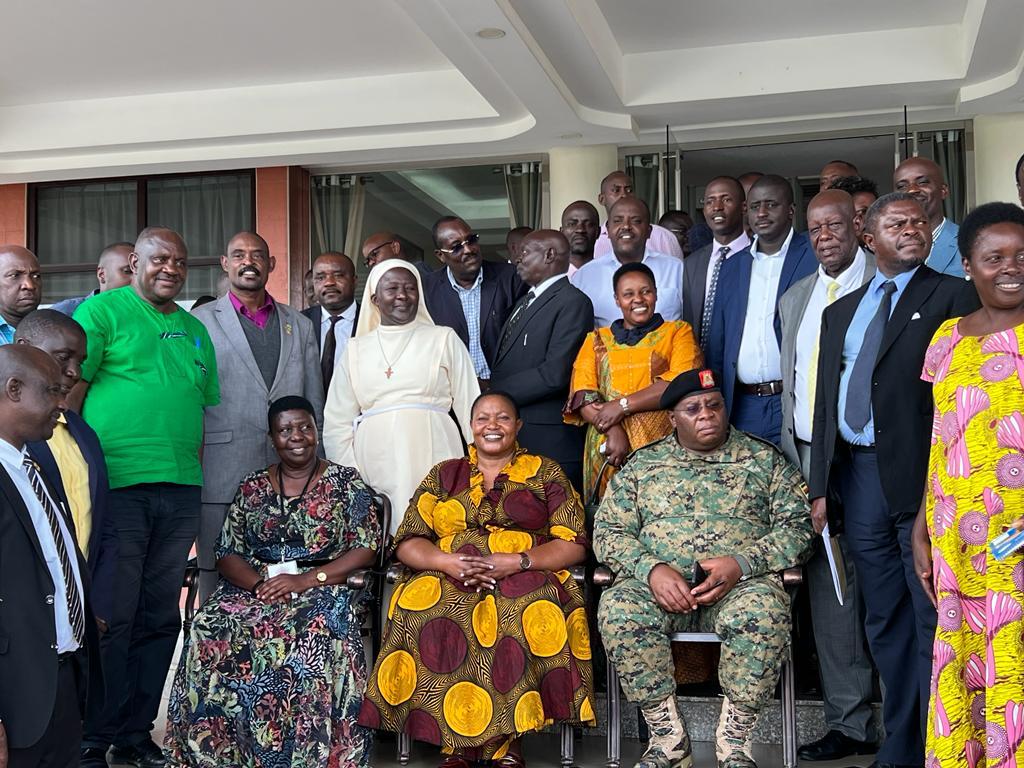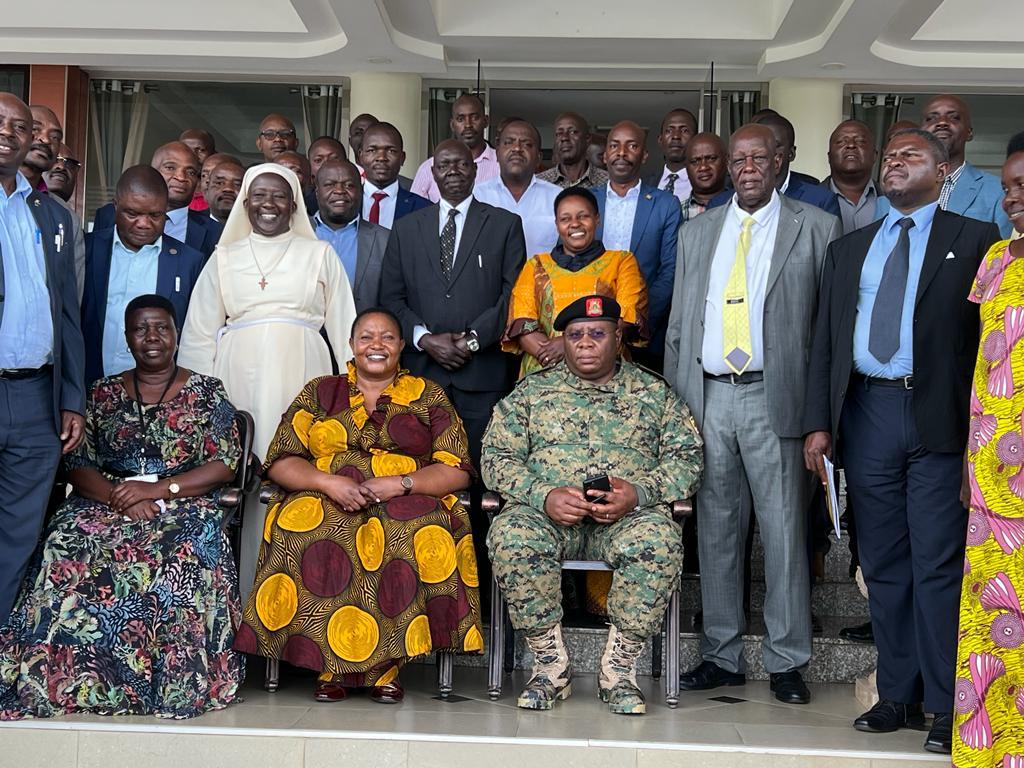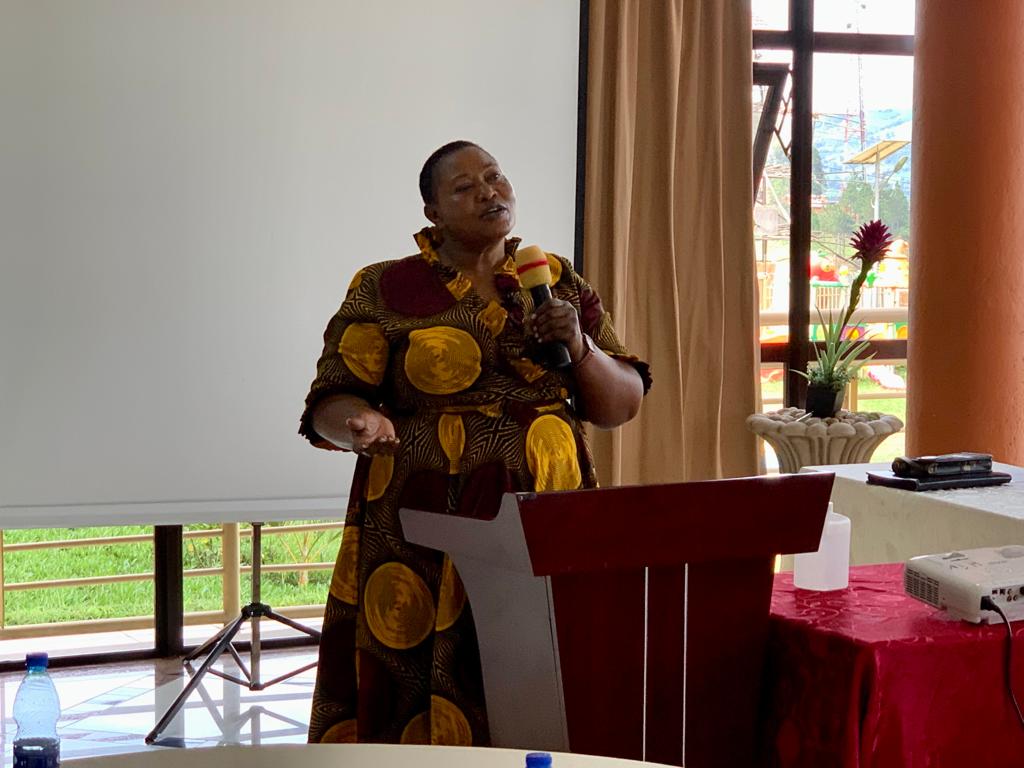The Minister for the Presidency, Hon. Babirye Milly Babalanda has told Resident District/ City Commissioners (RDCs/RCCs) to work towards ensuring proper implementation of the National Resistance Movement (NRM) Manifesto 2021-2026 and monitoring of service delivery in their respective areas of jurisdiction.
“You do not need to wait for the President or ministers to tour your areas before you can discuss the manifesto and service delivery. Implementation of the manifesto and monitoring of service delivery is a key responsibility of the RDC/RCC,” Hon. Babalanda reminded the commissioners.
The Minister made the remarks yesterday as she officiated at the opening of a two day capacity building workshop for RDCs/RCCs, their deputies and DISOs from Ankole and Kigezi sub-regions, held at Hotel Triangle, Mbarara City.
She revealed that the government has entered the second year of Manifesto implementation and it was the mandate of RDCs and RCCs as representatives of the President in their respective districts and cities to ensure that the initiative is a success.

Hon. Babalanda also thanked the RDCs for their efforts in ensuring that government policies and presidential directives are enforced and public services are implemented as planned.
“We continue to note improvements in your performance in this area.” She said.
She however, cited corruption as a major disease that still hinder their performance and therefore observed the need to address it for better service delivery and implementation of government programs and projects.
“When we talk of corruption, the fingers quickly point to actors at national level. But you forget the actors at the local level who play an even greater role in implementing government policies,” Hon. Babalanda noted adding that;
“As we are here, all of you should be knowing what was planned in your districts/cities for the financial year 2022/2023. You should know how much was received, how many programs were implemented as planned, and how many programs were fraudulently implemented.”
The Presidency Minister argued that if they manage the resources at their disposal well and also do proper monitoring and supervision of government programs, the issue of corruption will be minimized.
“The more we lose money at the hands of corrupt officials, the more we curtail our transformation. Therefore, I humbly appeal to you to take the issue of fighting corruption as very serious so we can save resources for service delivery. You cannot continue to occupy your offices when in actual sense nothing on the ground is being appreciated. We need to work as teams in the fight against corruption,” she added.

On the implementation of Parish Development Model (PDM) and Emyooga, Hon. Babalanda told the attendees that as stakeholders, they need to double their energy in supervising the delivery of these two flagship programs of government.
She disclosed that President Yoweri Kaguta Museveni was concerned that RDCs and RCCs are not giving sufficient attention to these activities that aim at dealing with the poverty problem in the country.
“You need to be in the know of all the monies that have been received in the district/city; how many groups of the beneficiaries have received or have not and what are the issues pertaining to delays, obstructions or inconsistencies in the performance of the programs,” she expounded.
The minister added that; “Similarly, H.E the President is concerned that you have not been able to popularize the directive on wetlands encroachment even when the environmental disasters linked to these encroachments continue to show face in our communities. As an interim measure, you will be required to forward to us the lists of those with titles in the wetlands so that we can start from here to address the concerns standing in the way of the directive.”
The Minister further requested the commissioners to always give priority to the issue of sensitizing the masses on government policies. This, she said, was the only way they could equip members of the public with information in order for them to effectively play their part and in order for RDCs/RCCs to get first hand feedback from the public on programs under implementation.
“This will also help to popularize the government programs,” Hon. Babalanda said, adding, “It has been noticed that actors at local level work in isolation, yet we look to the same goals and objectives. Let us not work as opponents because at the end of the day when we fail to perform, we will all be losers. In all, when the ratings are done, they are aggregated to overall district/city performance and not to the contributions of particular individuals.”
She also warned the RDCs/RCCs against undermining the district or city leaders.
“In public service, every officer plays a constitutional role and they are critical in their function. It is therefore not proper for RDCs/RCCs to undermine the district leaders or the Chief Administrative Officers,” the Minister counseled but however, guided that RDCs/RCCs are senior civil servants who represent central government making them the chief mobilizers and communicators of government programs in the local governments.
“In that capacity, they carry out critical monitoring and supervisory roles. Therefore, the accusations visited upon the RDCs for doing their work such as fighting corruption and poor service delivery will not be accepted. We will reject them on the account of the RDCs implementing their mandated roles. And on this, I wish to thank the Secretary Office of the President and the Principal Human Resource Officer for standing their ground” she said.

Meanwhile, the Deputy Director General of the Internal Security Organization (ISO), Lt Col. Emmy Katabazi lectured the RDCs and RCCs on the revolutionary methods of work.
He said it was upon leaders such as the commissioners to look at the situation in the society and make the fundamental changes needed to transform their areas.
“Are you a revolutionary or a spectator?” Lt. Col Katabazi posed a question.
He also urged the Commissioners to work closely with District Internal Security Officers (DISOs) and regularly hold District Security Committee (DSC) meetings, saying this will support their performance in the larger context of national stability and protection of the revolution.
The workshop was also attended by technical officers from the Office of the President, RDC Secretariat Officials, Senior Presidential Advisors among others.
![]()



























